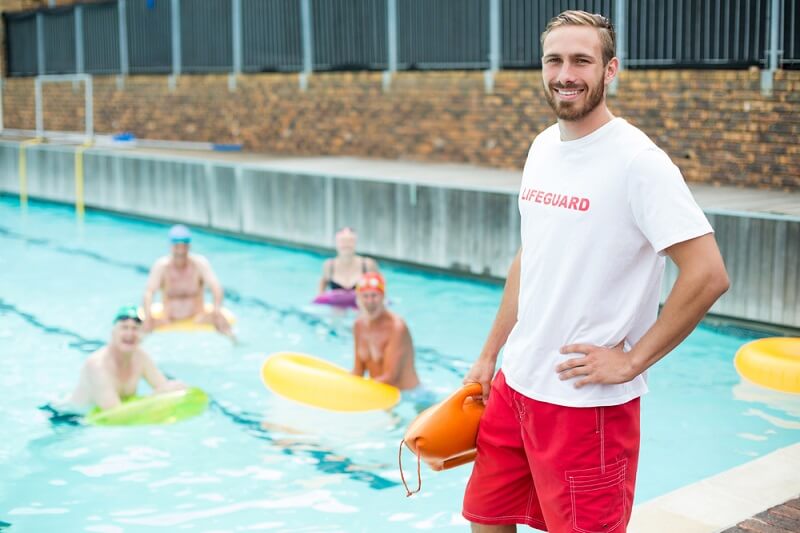They provide a great help, they are easily recognized and little is known about their true function. From their chairs, the lifeguards make sure everything is running smoothly and act in emergency situations to prevent these problems from getting worse. But how far do their responsibilities go, how far can they be held accountable?
In the case of families, it is important to know what the functions of the lifeguard are to avoid giving them all the responsibilities of caring for the little ones. Coordinating with these professionals will help make summer sessions in the pool or on the beach as calm as possible and will avoid major problems during these days.
What tasks does a lifeguard perform?
On the beach and in the pool, the figure of the lifeguard is essential and saves thousands of lives around the world. Contrary to what most people believe, a lifeguard training near me has many more functions than just watching over and saving drowning people, so let’s find out what they are.
Enforce safety regulations
Possibly the most important objective of the lifeguards is to enforce the rules of safety and behavior of bathers, both in public spaces (beaches) and closed spaces (hotel or municipal swimming pools). This means, among other things, intervening in possible altercations between people, ensuring that children do not run along the sides of the pools or alerting motor boats that do not respect the maritime buoys.
Lifeguard Obligations
What are the responsibilities of the lifeguard? What should he do and where is his limit? These people are considered rescue technicians and this is their main obligation, which they cannot neglect during bathroom hours. Its main mission is not to leave the surveillance post under any pretext, except in case of attending to an injured person or in a relay.
In short, you must monitor, control and attend to every swimmer who needs your help. But its functions do not include, therefore, watching the children while the parents bathe. From Bernard Fisher they explain that the rescue technician may be responsible for committing a crime if he does not help a helpless person, or if he does not ask for help when he himself cannot provide help.
Similarly, in the case of being negligent in their performance, and if the bather is affected by injury or even death, they would also be charged with a crime and could be disqualified. On the other hand, in the event that a situation of risk to health or property occurs outside the installation that the lifeguard must monitor, such as fights or robberies, he or she will not be able to leave his or her post to intervene, and must notify another person in charge of surveillance and control of these areas.
Also Read About: How long does it take to become a lifeguard?
The Work Of The Family
Although the lifeguard must take care of bathers and avoid shocks and major problems, parents also have the mission of taking care of their children so that there are no accidents in the water. The Spanish Association of Pediatrics provides the following advice so that these situations do not exist:
– In private pools, the use of safety fencing is recommended, which has been shown to reduce deaths by drowning by up to 95%. However, no system can replace the vigilance of the parents or caregivers of the child.
– Do not neglect children at any time. Parents should always keep an eye on their children and thus avoid accidents such as falls or the little ones moving towards the deepest areas of the pool or beach.
– Take into account the age and characteristics of the children before allowing them to participate in different water activities and that they always carry the recommended safety elements.
Respect the signs. If the flags on the beach indicate that bathing is not recommended, parents should ensure that their children do not go near the shore. Any other sign advising you to stay away from the water will also have to be respected in order to avoid accidents. – Avoid bathing in unsupervised areas such as the banks of a river or in ditches that are not areas designated for this purpose.

